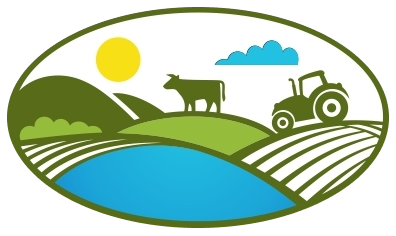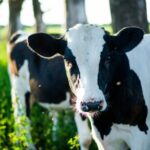
Dear Members,
The days are gradually getting longer, and though there is still a healthy blanket of snow, we are moving steadily towards spring and, hopefully, a new beginning.
So much has already been said about 2020 that I almost apologize for adding to the reams of words. It brought about a dramatic hiccup to our lifestyles and the way farming looked like it was going to go even in January 2020. With the arrival of the pandemic and the statewide lockdown that started mid-March, a lot was thrown into disarray. Reliable outlets for our milk, like schools and restaurants, disappeared. This also impacted other farm-sourced products, like meats and vegetables. Farm processors, like cheesemakers for example, also had to suddenly adapt.
In the middle of the summer, I left working for the Vermont Agency of Agriculture and took the position as Executive Director of our Champlain Valley Farmer Coalition. I have hardly left my basement since! The Coalition’s plans for in-field and on-farm educational programs had been scrapped. Most of the summer was spent ensuring that farmers were able to apply for any Federal and State COVID-19 relief funds. There had been significant disruptions to the milk market that resulted in abrupt price fluctuations. Hopefully, the financial assistance helped cushion the losses, though I am sure it was not enough.
Many of the farmers and processors pivoted successfully from selling in local markets to online and curbside pickup. Access to good, reliable internet service became a key factor for many of these businesses. I even had one beef and pork producer who admitted that after the first couple of weeks his business took off and he was having one of the best years ever. However, whenever there is a precipitous change, there will always be new challenges. Farm-raised livestock producers were challenged in getting their animals processed and inspected for market by a system that was already close to peak capacity.
There were some notable and positive outcomes that I hope the Coalition and our farmer members can build on. Consumers were alerted to the value of their local food system, the benefits of shorter supply chains, the quality of local food, and the importance of their local farmers. Consumption of dairy products, including fluid milk, increased, as well as sales of locally raised meat, vegetables, flour, and other farm products. And, of course, we have all been made acutely aware of how much we rely on and need better internet service.
Amongst all of the strife and trials of last year, farmers nonetheless continued their good work on water quality. The 2020 Clean Water Performance Report issued by various state agencies, including Agriculture and Natural Resources, shows a further reduction of 28.2 metric tons of phosphorus, more than 95% of which is attributed to the work of farmers. That work includes cover cropping, manure injection, conservation tillage, no-till planting, grazing management, crop rotation, and other practices. On top of which, there have been substantial improvements to barnyards and production facilities. The goal is a reduction of 201 metric tons of phosphorus by 2038; there’s a lot of work yet to be done, but farmers are engaged and enthusiastic. After all, those farms are their environment, and they are proud of it.
So now what? We are into 2021 and very soon maple sugaring will begin, followed by spring field work, grazing livestock turn out, planting, haying, and onward. We are all hoping for a good crop season, but we are realists–prepare for the best and plan to reduce your risk!
The Coalition hopes to get back to in-field and on-farm educational programs soon, discussing new soil management techniques, manure management, pest and weed management, grazing management, and forage quality improvement. For example, improving the quality, timing, and storage of homegrown forage would have a direct financial benefit to a livestock producer in reducing the number of off-farm inputs, like grain, that would need to be bought. We will release a plan for these educational sessions shortly.
A conversation that the Coalition continues to be heavily involved in is the renewed interest in soil health and, in particular, the role of improved soil health in reducing farmers’ climate impact. The Coalition plans to continue to have the voice of our members and the example of practices on members farms to show what can be done responsibly.
In our next print newsletter, we will have a good idea how the year is shaping up. I wish you all a good start to the summer season and keep in touch.
Sincerely,
John D.E. Roberts
Executive Director




